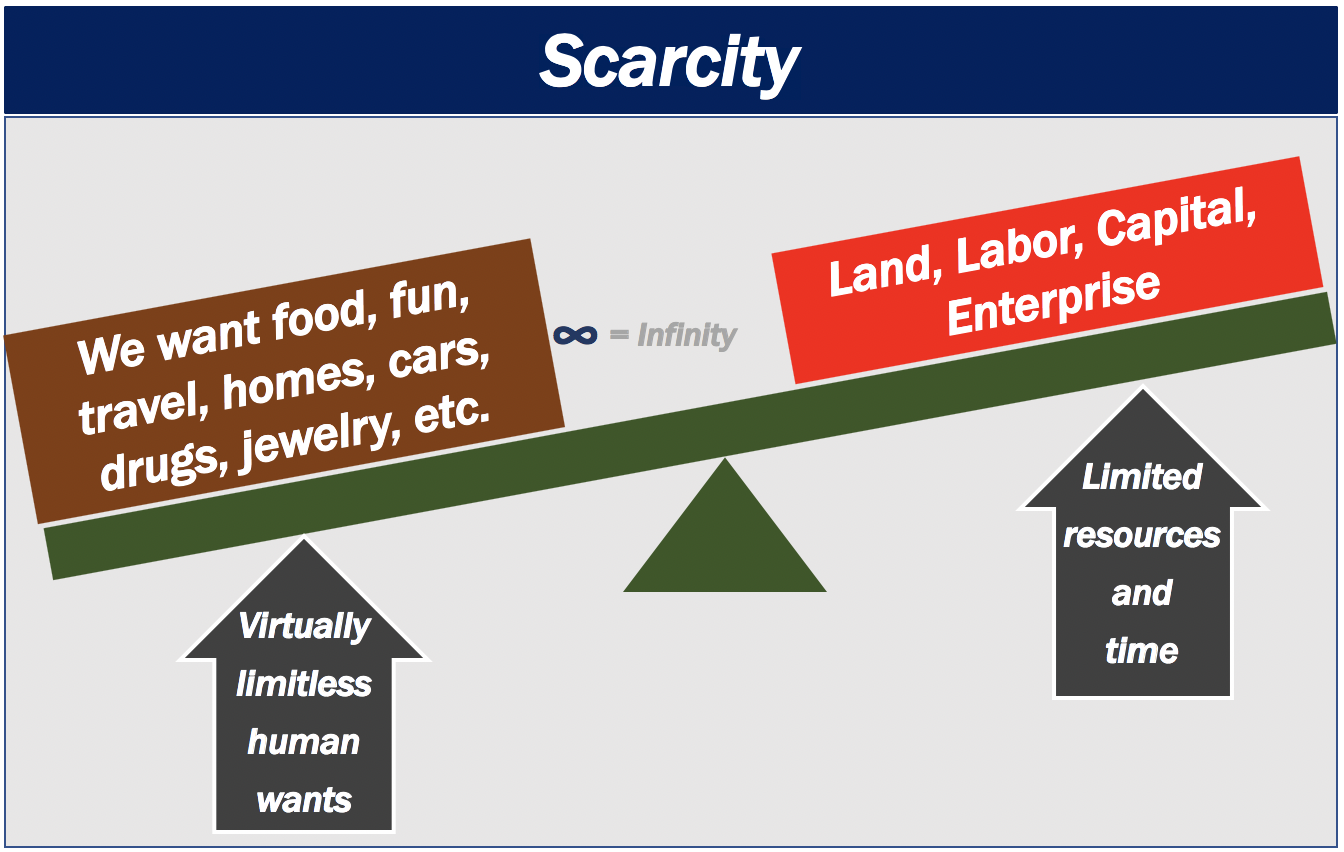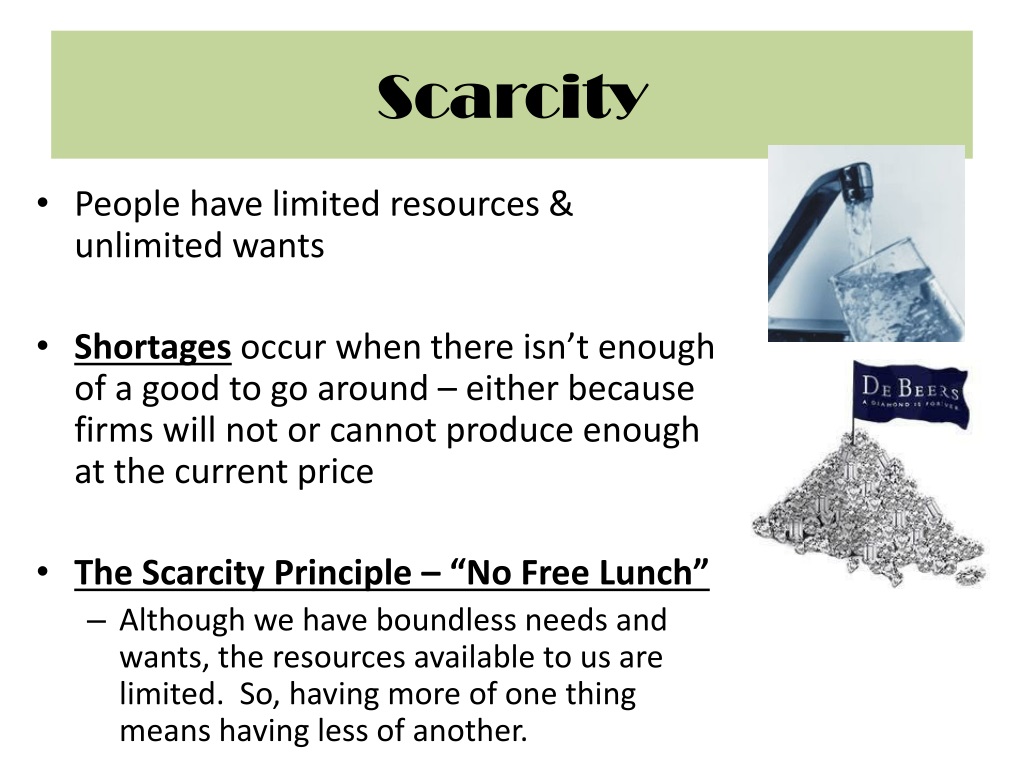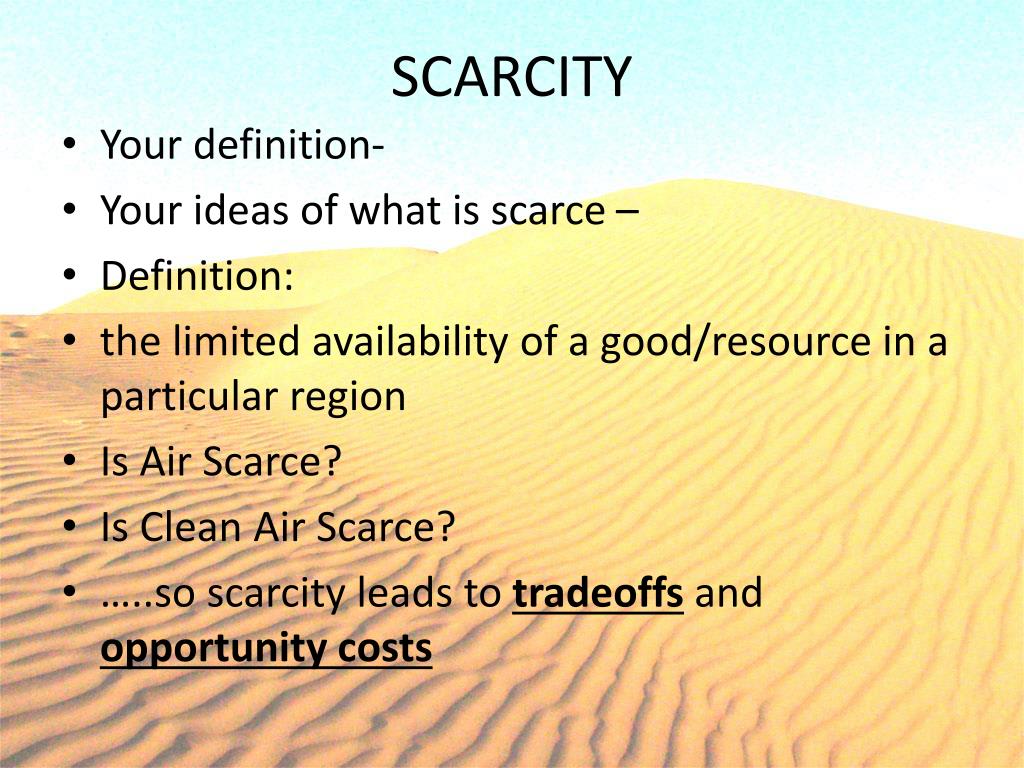Scarcity Meaning - What It Means For Everyone
Have you ever wanted something that was just plain hard to get? Perhaps a popular concert ticket that sold out in minutes, or maybe a special treat at the store that was always out of stock. That feeling, that situation where there just isn't enough of something to go around for everyone who wants it, is at the heart of what we mean when we talk about "scarcity." It's a very simple idea, really, but it shapes so much of how our world works and how we make choices every single day.
This idea of things being a bit tough to grab hold of, or not easy to find, touches nearly every part of our lives, whether we realize it or not. From the everyday items we pick up at the grocery store to the bigger choices countries make about their resources, the concept of not having an endless supply of everything plays a pretty big role. It’s not just about something being rare, you know, like a unique stamp; it's about not having enough to satisfy everyone's desires and needs at a given moment. So, in some respects, it's a constant balancing act.
We're going to take a closer look at this basic idea, exploring what it truly means when we say something is scarce and how this simple truth impacts prices, choices, and even our future plans. We'll unpack why this concept is so important, especially when we think about how things are shared and what we value. Basically, we’ll explore the deep roots of why we can't always get everything we want, and how that shapes our actions.
Table of Contents
- What Does Scarcity Mean for All of Us?
- Why is Scarcity Meaning a Big Deal?
- Are Resources Truly Limited - The Scarcity Meaning Question?
- What Happens When Scarcity Meaning Shows Up?
What Does Scarcity Mean for All of Us?
When we talk about the idea of scarcity, we're really just describing a time when something is not easy to find or get. It's that feeling you get when you really want something, but there just isn't enough of it to go around. Think about a popular new toy that everyone wants for the holidays; if the toy company only makes a small number, then suddenly, that toy becomes scarce. This means fewer people can get their hands on it, and those who really, really want it might have to try harder or look in more places. It's a simple idea, yet it carries a lot of weight in how we live our lives, you know.
In the world of how money and goods move around, which we often call economics, scarcity means there's a bit of a shortage in the supply of something important. When there isn't enough of a particular resource, that lack tends to push its price tag higher. This then means that fewer people can get it, as it ends up going to those who are ready and able to pay a higher amount. So, it's pretty clear that this idea directly affects who gets what, and at what cost, in any given community. This is, in fact, a very core concept.
The very meaning of scarcity is about the way things are when there isn't much of something available. It's the simple truth that things are not always abundant. Sometimes, it can even refer to a need for supplies that keep us alive, like not having enough food or clean water. This kind of shortage can be a very serious matter, affecting people's ability to live day-to-day. It’s not just a fancy word; it describes a very real condition that many people face, basically.
Why is Scarcity Meaning a Big Deal?
This idea of scarcity is, in fact, one of the main points to think about in economics. It helps us figure out why things cost what they do and why people make certain choices. When something is scarce, it usually means people have to make decisions about how to use what little there is. For example, if there's only a limited amount of a certain type of wood, builders might have to choose which projects get that wood and which ones use something else. It really makes us think about what we value and how we prioritize.
Scarcity Meaning in Your Everyday World
You see this idea of scarcity play out in your daily world all the time, even if you don't call it by its proper name. Think about your own time, for instance. You only have a set number of hours in a day, right? That means your time is a scarce resource. You have to decide how to spend those hours: working, relaxing, seeing friends, doing chores. You can't do everything, so you make choices based on what you want or need most at that moment. This is a very common way we experience the idea of not having enough of something, even if it's not a physical item.
Similarly, money is a classic example of something that is, for most people, quite scarce. We don't have an endless supply of it, so we have to decide how to use it for things like rent, food, entertainment, and saving. Every purchase is a choice that reflects the limited nature of our funds. When you choose to buy one thing, you are, in a way, choosing not to buy something else. This push and pull of limited funds against our many desires is a constant reminder of scarcity meaning in our personal finances.
How Scarcity Meaning Changes What Things Cost
One of the most direct ways that scarcity meaning shows its face is through the cost of things. When there's a shortage in the supply of something, and lots of people want it, its price tends to go up. This happens because those who really want it are willing to spend more money to get it, and those who have it know they can ask for a higher amount. Think about tickets to a big sports event or a concert with a famous singer. There are only so many seats, so when everyone wants to go, the tickets get really expensive, quite fast. This is a clear example of how not having enough of something makes it cost more.
On the other hand, if there's a huge supply of something, and not many people want it, the price usually goes down. This is the flip side of the coin, you know. The basic truth is that when things are hard to come by, they become more valuable, at least in terms of what people are willing to pay. This constant dance between how much of something is available and how much people want it is what helps set prices for almost everything we buy and sell. It's pretty much a fundamental rule of how markets work, actually.
Are Resources Truly Limited - The Scarcity Meaning Question?
In the world of economics, a simple truth we all face is that there exists only a set number of human efforts and the stuff from the earth. This means we have only a finite amount of what folks can do and what nature gives us to work with. Even with the best technical know-how we have, we can only produce so much. This basic fact is at the core of the scarcity meaning. We can't just magically create more land, more clean air, or more skilled workers out of thin air. These things are, by their very nature, limited in their supply. This is a pretty big idea to wrap your head around, so it is.
This limited nature of resources means we constantly have to make choices. If we use a piece of land to grow corn, we can't also use that same land to build houses at the same time. If a person spends their time working on one project, they can't be working on another. Every choice we make about how to use our limited resources means we are giving up the chance to use them for something else. This concept of giving something up to gain something else is often called an "opportunity cost," and it’s a direct result of scarcity meaning. It's just how things are, you know.
The Basic Idea of Scarcity Meaning
The basic idea of scarcity meaning is that there's just very little of something. It's the state of not having enough. This isn't always about things being gone forever, but often about there not being enough at a particular moment or in a particular place to meet everyone's desires. For instance, there might be plenty of water on Earth, but clean, drinkable water in a desert area can be very scarce. So, it's not always about the total amount, but about what's available where and when it's needed, which is a bit different.
This fundamental idea helps us understand why societies have to come up with ways to share out what they have. Because resources are not endless, we need systems to decide who gets what, how things are made, and for whom they are made. This is why governments and communities create rules and systems for distributing goods and services. It’s all in response to the simple, yet powerful, truth that we can't have everything we want, all the time. It’s a pretty central point, honestly.
What Happens When Scarcity Meaning Shows Up?
When scarcity meaning shows up, it often leads to changes in how people behave and how things are organized. Take, for example, a time of war when the way goods are moved around the world gets messed up. There might be a fuel scarcity, meaning it's really hard to get gasoline or diesel. This situation would push people to find other ways to get around, like sharing rides in cars or riding bikes instead of driving alone. It makes people adjust their habits and find new solutions to old problems, which is quite interesting to see.
This kind of situation, where there isn't enough of something, means that people have to make tough choices. If fuel is scarce, a delivery company might have to decide which routes are most important, or which customers get their goods first. Individuals might have to choose between driving to work or saving fuel for an emergency. These decisions are a direct result of the fact that there isn't enough for everyone to just carry on as normal. It’s a clear illustration of how not having enough can change daily routines, basically.
Scarcity Meaning - Not Enough to Go Around
At its heart, scarcity meaning is simply about there not being enough of something to go around for everyone who wants it. It's the quality or state of being rare or in short supply. This idea is a core issue in economics because it explains why we have to make choices. If everything were endless, if we could just have whatever we wanted whenever we wanted it, then there would be no need for prices, or for careful planning about how we use things. But that's not how the world works, is that?
Because our desires and needs are, for the most part, endless, and the stuff we have to meet those desires is limited, we always face this challenge. We always want more than what is readily available. This simple fact means that we are always in a position where we have to decide what is most important to us, and what we are willing to give up to get it. This constant push and pull is what makes the idea of scarcity so powerful and so important to understand, truly.
Looking at Scarcity Meaning Through Examples
Let's look at a few more examples to really nail down the scarcity meaning. Think about clean air in a heavily polluted city. Even though there's air everywhere, clean air, the kind that's good for your lungs, can be a scarce resource there. This might lead people to buy air purifiers or even consider moving to a place with better air quality. The insufficient amount of clean air pushes people to make choices and spend money they might not otherwise, you know.
Another example could be a rare skill. If only a few people in the world know how to do a very specific, complex type of surgery, then that skill is scarce. Those few people will be in high demand, and their services will likely be very expensive. This shows how human abilities and talents can also be subject to the idea of not having enough to go around. It's not just about physical things; it's about anything that has a limited supply compared to how much it is wanted. This is pretty much how things work, often.
So, what we've seen is that scarcity, or the idea of not having enough, is a basic truth of life. It refers to situations where something is hard to find or get, whether it's a physical item, a resource like fuel, or even something less tangible like time or a special skill. In the world of how goods and money move, it's about a shortage that makes prices go up and affects who gets what. It highlights that we have a set amount of human effort and natural resources, but our desires and needs are always wanting more. This fundamental imbalance means we constantly have to make choices, shaping everything from our daily routines to how societies are organized and how much things cost. It’s a very simple concept, yet its reach is quite wide, impacting nearly every decision we make, both big and small, as a matter of fact.

What is scarcity? Definition and meaning - Market Business News

PPT - Economics Basics: Definitions, Factors of Production, Scarcity

PPT - SCARCITY PowerPoint Presentation, free download - ID:1966703